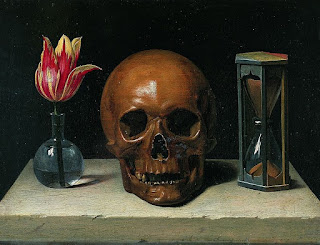Roland Barthes – The Death of the Author
work influenced the development of post-structuralism and deconstructionism.
At the beginning of his essay, Barthes gives a striking example of his theory, taken from Balzac's story, Sarrasine. This involves a description of a castrato disguised as a woman. According to Wikipedia, "A castrato is a type of classical male singing voice equivalent to that of a soprano, mezzo-soprano, or contralto. The voice is produced by castration of the singer before puberty, or it occurs in one who, due to an endocrinological condition, never reaches sexual maturity."
Barthes continues:
"This was a woman herself, with her sudden fears, her irrational whims, ... her fussings and delicious sensibility."
Then Barthes asks: "Who is speaking?" The possibilities he presents are as follows:
Is it the hero of the story?
Is it Balzac, the individual, writing from personal
experience?
Is it Balzac, the author, expounding on femininity?
These doubts prompt Barthes to pronounce the beginning of writing as the point where the death of the author occurs. "Writing is that neutral, composite, oblique space where our subject slips away, the negative where all identity is lost, starting with the very identity of the body writing."
The status of authors is a tyranny for language
Barthes views the special status accorded to authors a tyranny, for language cannot be owned. "Linguistically, the author is never more than the instance writing, just as I is nothing other than the instance saying I." Anything the author says is drawn from numerous cultures, therefore all s/he is doing is mixing writings. The result of this insight makes the author superfluous.
Barthes continues by asserting that the admiration of the author is a sign of arrogance in society. Instead, the reader is elevated in Barthes' view, for it is his/her responsibility to read and interpret the multiplicity of texts presented in the work.
"The reader is the space on which all the quotations that make up the writing are inscribed... a text's unity lies not in its origin but in its destination."
Therefore, the reader, on encountering the undecidability of the text, confronts the imbalance between binary oppositions and begins to interpret. As a result, a chain of signifiers is created.
The subsequent introduction of disorder and uncertainty into communication, which may include puns and wordplay, further undermine clarity of meaning.
Writers shouldn't be arrogant!
Barthes says, in conclusion: "We are now beginning to let ourselves be fooled no longer by the arrogant antiphrastical* recriminations of good society in favour of the very thing it sets aside, ignores, smothers or destroys; we know that to give writing its future, it is necessary to overthrow the myth: the birth of the reader must be at the cost of the death of the author."
* antiphrastical: using a word in the opposite sense of its usual meaning.
Sources:
"The Death of the Author," Roland Barthes, Literature in the Modern World, Ed. Dennis Walder, Oxford University Press, Oxford, 1990.



Comments